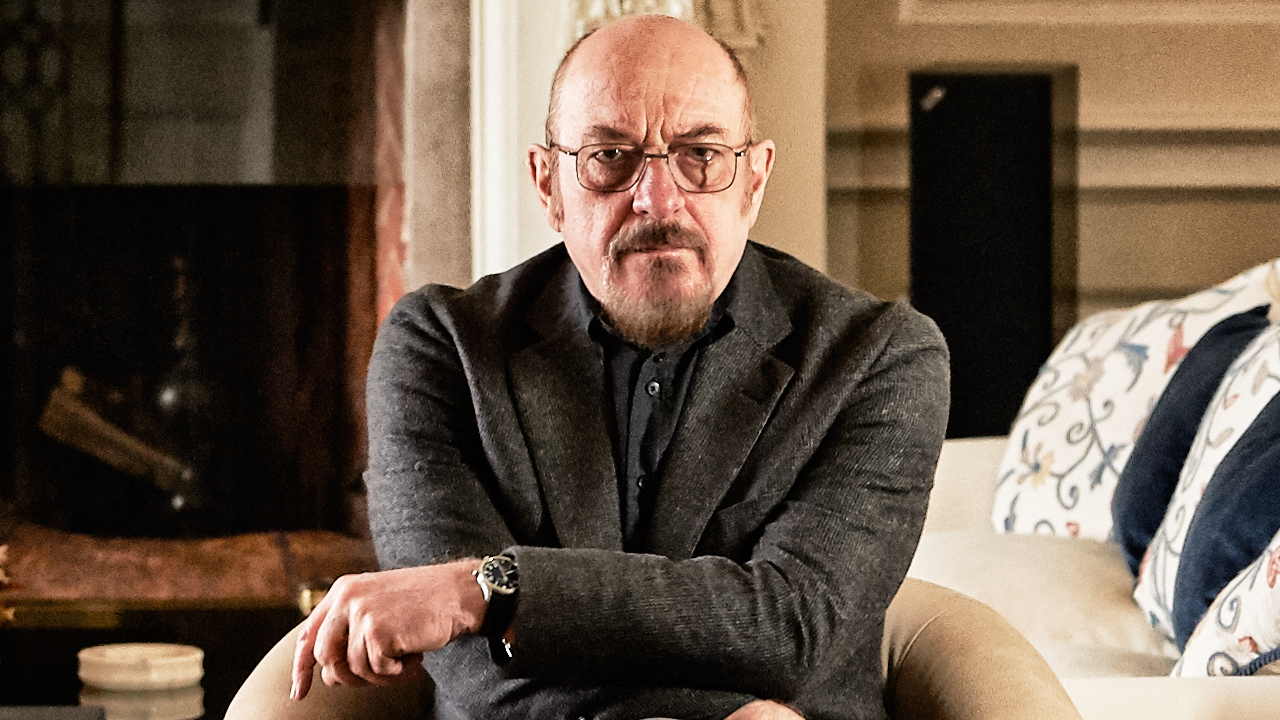Jethro Tull’s Ian Anderson has dismissed the music of The Rolling Stones and The Who as “generic’ and recalled Led Zeppelin and Jimi Hendrix’s ‘appetites’ for sex and drugs in a brace of entertaining new interviews to promote The Zealot Gene, his band’s first studio album since 2003.
Interviewed for The Telegraph, Anderson laughs off the idea that punk rock was supposed to have killed off prog, and likens his band’s continued survival to a mutating virus.
“I think the punks thought that they were the triple vaccination that would rid the world forever of the horrible virus of prog rock,” he says, by way of an introduction to Tull’s 22nd studio album. “Unfortunately, like in the real world, the virus tends to bounce back in a slightly revived or even re-energised form.”
“I’m not about to hang up my codpiece just yet.”
Not content with casually dismissing the impact of punk rock, Anderson also has some critical thoughts on his peers, which he shares in an interview with The Guardian.
“Over all those years, Jethro Tull tried hard,” he says. “Some people might say we tried too hard, but it’s better to do that and fall on your face once in a while rather than sit comfortably backpedaling in order to keep on an even keel. I’d get restless if I did generic music like the Stones or even the Who, or the Ramones in the world of punk.”
“I loved the blues, but for me it was just a pragmatic way of opening the door, because it wasn’t really what I wanted to do musically,” he adds. “The signposts were The Beatles’ Sgt Pepper’s Lonely Hearts Club Band and then Pink Floyd’s The Piper at the Gates of Dawn. I thought: ‘I want to try to do something like that, something that’s eclectic’.”
In his interview with The Telegraph’s Chris Harvey, Anderson talks about the excesses of the 1960s and ’70s and says he acquired a reputation as a “stuck-up snob” for his unwillingness to participate: he also states his belief that many of the wild stories of the era have been exaggerated.
“It was probably not so typical that the party lifestyle was hard, and long and ubiquitous,” he says, “it’s wishful thinking. Although, doubtless, going back to Led Zeppelin, they did have on occasions a pretty wild time.
"But [when] I vaguely knew them, they seemed just like a bunch of OK guys who enjoyed a little bit of female company when they could get it... which was probably no more than three or four times a day.”
The singer also recalls an encounter with Jimi Hendrix, when the two musicians were hiding out in a darkened hotel corridor to avoid attending a press conference.
“I lit a cigarette and looked down the corridor, and I could see the glow of another cigarette,” says Anderson. “In the gloom, I sort of recognised the profile of Jimi Hendrix. He said, ‘Oh, man, I don’t like these things. People won’t leave me alone.’ And we exchanged a few words of mutual sympathy for not being the party guys.
“But a couple of years later, when we played some festivals together in the US, he was surrounded by a phalanx of lackeys who seemed to have the principal function of keeping him amused, up all hours and feeding him an ample and ongoing supply of various drugs. I think he was still something of a quiet, modest person [in private] but he had definitely put in a lot of hours being the party guy, and in a way, I think his demise was inevitable.”
Anderson’s interviews can be read in full on the respective newspaper websites.
Jethro Tull are on the cover of the new issue of Prog magazine, which is out now.

